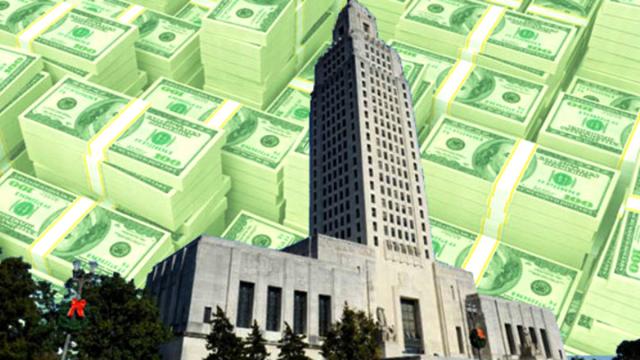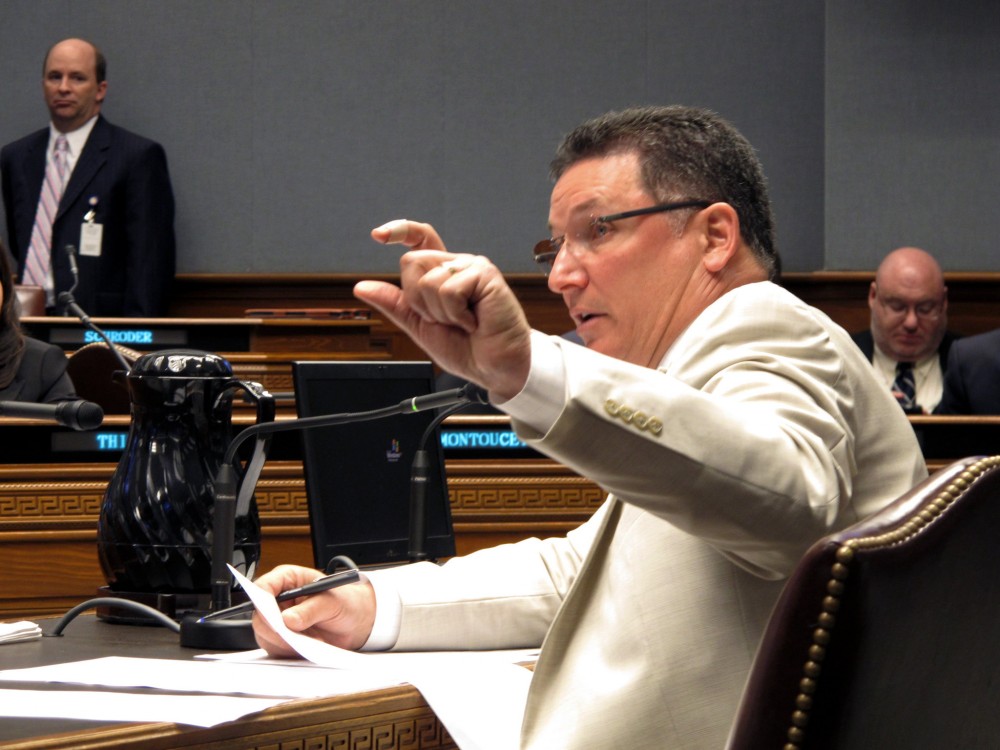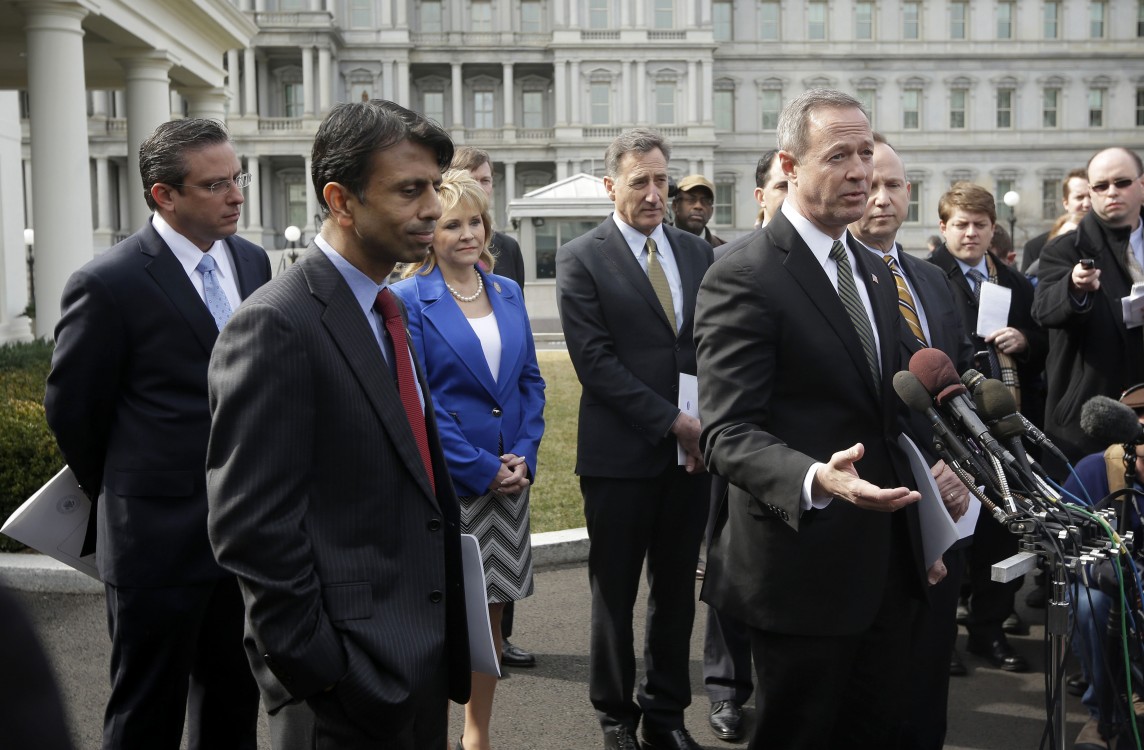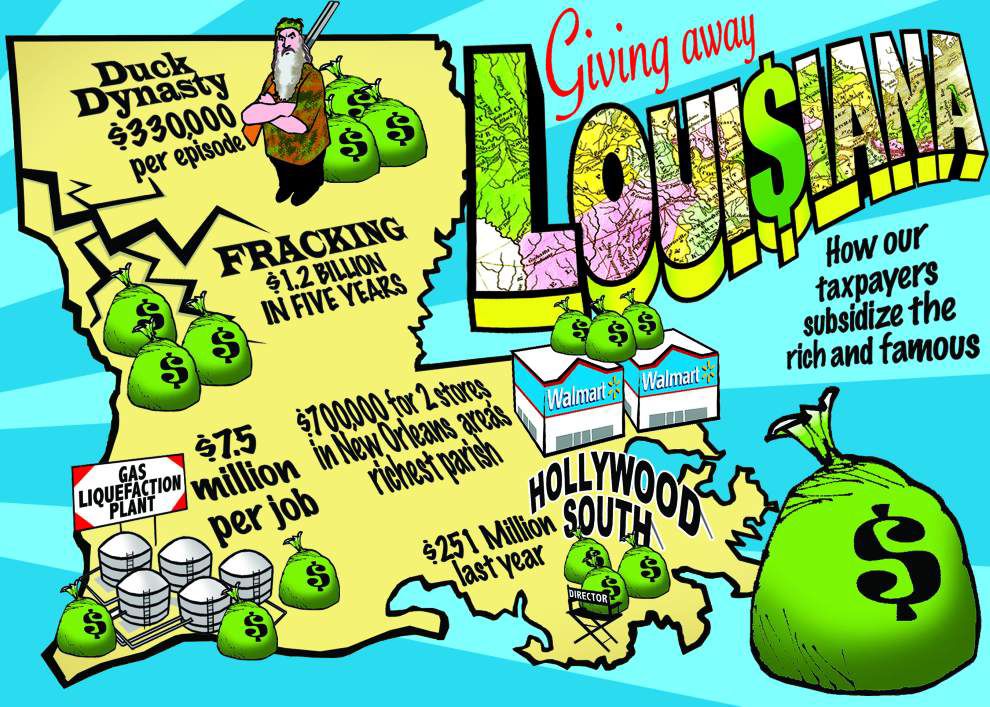
Louisiana can be considered a great laboratory specimen in the experiment of government austerity, often used synonymously with the term fiscal responsibility by its supporters. The state legislature and governor’s office were dominated by fiscal hawks from 2008 to 2016, and these same hawks still dominate the state House of Representatives. However, it should clear by now to anyone watching that these representatives' positions on government finance are anything but fiscally responsible.
John Schroder, a Louisiana House member since 2008, has been among the most vocal proponents of fiscal austerity. “It’s time to stand up to the status quo and a crooked, bloated institution that can’t seem to grasp the concept of living within its means,” he said last week.
Schroder was referring to the special legislative session called by Gov. John Bel Edwards to create a balanced budget. The state legislature was unable to reach a compromise during the regular session, which ended Thursday at 6 p.m. There appeared a chance for the legislature to pass a budget before the deadline, but House leaders wouldn't allow the budget to come up for a vote.
As a result, a special session, costing still more state money, began at 6:30. The House then voted to adjourn until Monday despite the wishes of the governor and the state Senate that sought to work through the weekend.
The special session will be the last for Schroder, who announced his resignation on June 6 in order to run for state treasurer, in an election happening this fall. When Schroder first announced his intention to run in January, he said, “I’m very proud of the strong, talented campaign team overseeing my 2017 treasurer campaign. I look forward to working with them as we share my conservative record of fiscal responsibility.”
One of the duties of the state's treasury is to head the State Bond Commission, which oversees issuance of bonds for public construction projects. Whoever becomes treasurer will find the state’s credit rating has worsened due to downgrades from all three major credit agencies over the last year and a half, resulting in higher interest rates. In its March 2017 report, Moody’s pointed to the state's financial uncertainty in the coming years.
Why all the apparent economic instability in a state governed by so-called fiscal hawks? For one, the Louisiana legislature failed to tackle comprehensive tax reform in its 2017 regular session. This followed two special sessions in 2016, which ended in compromise with temporary taxes implemented totaling about $1 billion, which are set to expire in 2018. Much of the revenue in these temporary taxes comes from an increase in sales tax, giving Louisiana the highest sales tax rate in the nation. Sales tax is considered a regressive tax since it results in a greater burden on those with lower incomes.
Louisiana established a commission to study the state tax structure and make recommendations to improve it. Representative Schroder led the commission, but he panned its finding during the 2017 legislative session.
"They didn't get the full scope. It was all about spending and taxes. We got a full dose of taxes,” he said.
The commission’s report focused mostly on taxes. But the report also stated that there are few discretionary areas to cut, pointing out that health care, for example, would see double the funding loss since it is matched by federal funds. The report also asserted that the state wouldn't see significant savings by cutting programs in the short term.
In that anti-tax, cut-spending mood, and following calls by the Louisiana Republican Party, the state House killed a bill that would have raised the state's gas tax by 17 cents, despite support from various chambers of commerce. The tax was supported by business groups and the governor’s office, who saw it as a way to address a $13 billion backlog of maintenance and repair to state highways.
If Schroder wins in the fall, he'll succeed John Kennedy who vacated the office upon his election to the U.S. Senate last year. Kennedy had been an outspoken critic of Gov. Bobby Jindal’s budgetary practices – namely, using one-time sources of money and phony accounting to balance the state budget. When Jindal became governor in 2008, Louisiana had a budget surplus of about $800 million. By the time he left office eight years later, the state had a budget deficit of almost $1 billion.
Kennedy changed his tune, however, after he lost elections for national office. When Gov. Edwards called the 2016 special session to address the near $1 billion deficit, then second-time U.S. Senate candidate John Kennedy called upon the state legislature to resist tax increases. “We don’t have a revenue problem. We have a spending problem, but it can be fixed. I know that because I watch Louisiana businesses and families live within their means every day,” he said in a televised speech.
Kennedy’s speech failed, however, to provide a context. Quality of life studies rank Louisiana near the bottom in many state rankings. About one in five Louisianans live in poverty, according to the U.S. Census. State business rankings are mixed; the state’s tax system benefits businesses through its numerous exemptions and deductions, but is hurt by poor infrastructure, a lack of citizens with higher education, and an economy dominated by the floundering oil and gas industry.
While Louisiana remains mired in political gridlock, another conservative state has pushed back against the fiscal austerity ideology. In Kansas, Gov. Sam Brownback signed into law a series of tax cuts in 2012, which he then referred to as a “real live experiment” that, he promised, would lead to real economic growth.
Five years later, the opposite is true. Kansas endured a recession in 2015, and the following year the state saw 0.2 percent growth – lagging significantly behind the nation’s GDP of 1.6 percent. Last Wednesday, enough Republicans united with the Democratic block to override Gov. Brownback’s veto of a bill that increased taxes. “Brownback economics have been a complete failure and we are moving away from it,” Kanas Republican representative Jim Ward said.
Such a turnaround hasn't yet occurred in Louisiana, where Republicans still continue to resist attempts to reach a budgetary compromise. The state legislature is now in special session aiming to balance the budget before the July 1 fiscal year begins. Meanwhile, Louisiana ranks second to last in state economy rankings, according to a recent “Wallet Hub” survey. Nonetheless, Republicans in the House insist on continuing their own real live experiment, spectacularly ignoring evidence that their "fiscally responsible" policies have, in fact, wrecked their state's economy.
3 WAYS TO SHOW YOUR SUPPORT
- Log in to post comments


















